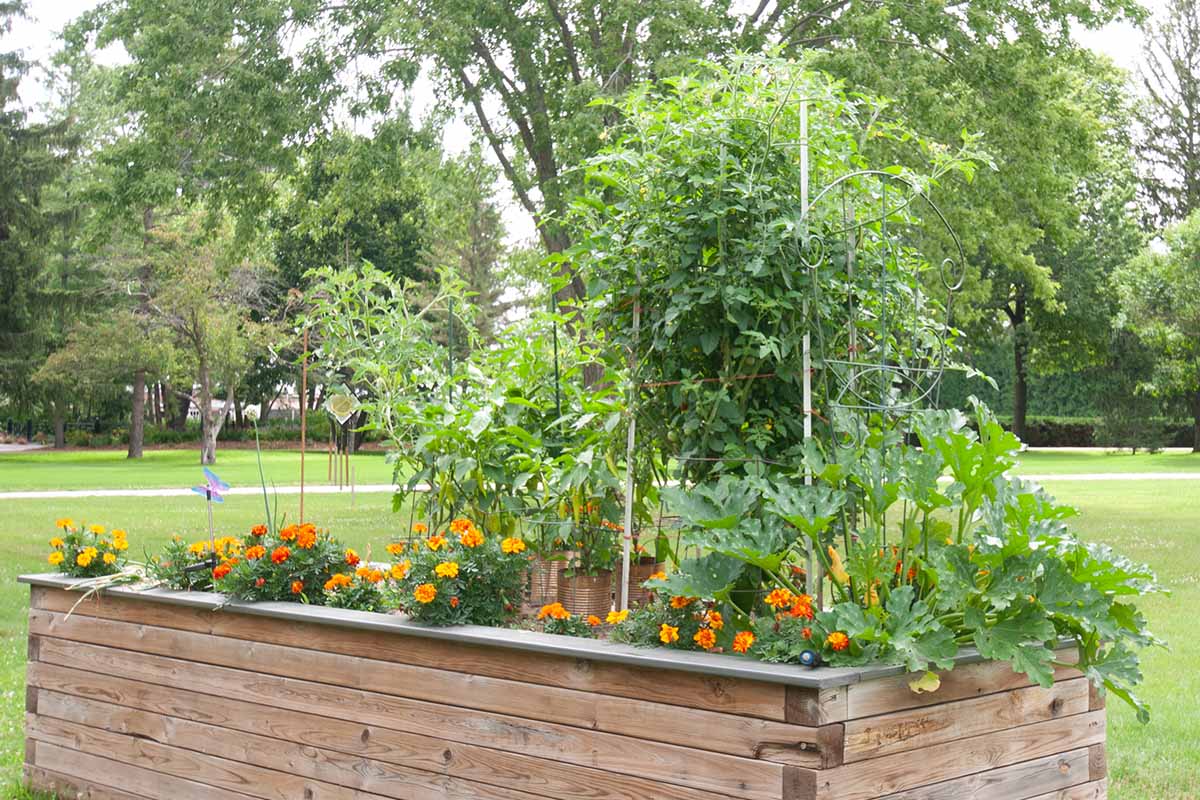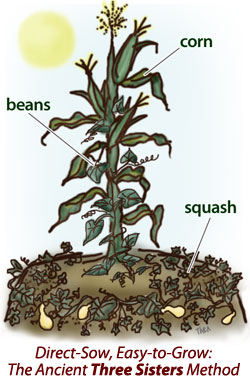Grow A Bountiful Harvest With The Best Companion Plants For Vegetable Gardens
Grow a Bountiful Harvest with the Best Companion Plants for Vegetable Gardens
Introduction
Growing a vegetable garden is a rewarding experience, but it can also be challenging. One way to make gardening easier and more productive is to use companion planting techniques. Companion planting is the practice of planting different types of plants together in order to benefit their growth and deter pests.
There are many different companion planting combinations that you can use, but some of the most popular include:
- Beans and corn: Beans fix nitrogen in the soil, which benefits corn. Corn provides shade for beans, which helps to protect them from pests.
- Carrots and onions: Carrots and onions repel each other's pests.
- Cucumbers and melons: Cucumbers and melons attract pollinators, which help to improve the yield of both crops.
- Lettuce and tomatoes: Lettuce shades the roots of tomatoes, which helps to keep them cool. Tomatoes provide support for lettuce, which can be prone to falling over.
- Peas and beans: Peas and beans fix nitrogen in the soil, which benefits each other.
These are just a few of the many companion planting combinations that you can use. By doing a little research, you can find the perfect combinations for your garden.
Main Content
The Benefits of Companion Planting
There are many benefits to using companion planting techniques in your vegetable garden. Some of the most important benefits include:
- Increased yields: Companion planting can help to increase the yields of your vegetable crops. This is because the plants in a companion planting system work together to support each other's growth.
- Improved pest control: Companion planting can help to improve pest control in your garden. This is because some plants repel pests, while others attract beneficial insects that help to control pests.
- Improved soil health: Companion planting can help to improve soil health. This is because some plants fix nitrogen in the soil, while others help to break down organic matter.
- Diversity: Companion planting can help to increase the diversity of your garden. This is beneficial because it helps to attract a wider variety of beneficial insects and pollinators.
How to Use Companion Planting
There are a few things to keep in mind when using companion planting techniques. First, it is important to choose the right companion plants for your specific garden. You can do this by doing some research or by consulting with a gardening expert.
Second, it is important to plant the companion plants in the right location. Some companion plants need full sun, while others prefer partial shade. It is also important to consider the spacing requirements of the different plants.
Finally, it is important to water and fertilize your plants regularly. This will help to ensure that they are healthy and productive.
Some Companion Planting Combinations to Try
In addition to the combinations mentioned earlier, here are some other companion planting combinations that you can try:
- Basil and tomatoes: Basil repels pests such as mosquitoes, flies, and aphids. It also helps to improve the flavor of tomatoes.
- Beetroot and carrots: Beetroot helps to deter carrot flies, while carrots help to deter beetroot leaf miners.
- Cabbage and nasturtiums: Nasturtiums attract beneficial insects that help to control cabbage pests.
- Garlic and tomatoes: Garlic repels pests such as aphids, mosquitoes, and spider mites. It also helps to improve the flavor of tomatoes.
- Marigolds and most vegetables: Marigolds repel a wide variety of pests, making them a good companion plant for most vegetables.
Conclusion
Companion planting is a great way to improve the productivity and health of your vegetable garden. By using the right companion plants, you can increase yields, improve pest control, and improve soil health. If you are new to companion planting, start by trying a few of the combinations listed in this article. With a little experimentation, you will be able to find the perfect companion planting combinations for your garden.
Companion planting is a gardening technique that involves planting certain plants together to benefit each other. Some plants attract beneficial insects, while others deter pests. Some plants help to improve the soil, while others provide shade or support.
There are many different companion planting combinations that you can try. Some popular examples include:
- Tomatoes and basil: Basil helps to repel tomato hornworms, and tomatoes provide support for basil plants.
- Carrots and onions: Onions help to repel carrot flies, and carrots help to improve the flavor of onions.
- Beans and corn: Beans fix nitrogen in the soil, which benefits corn plants. Corn provides support for bean vines.
- Marigolds and cabbage: Marigolds help to deter cabbage moths, and cabbage provides support for marigolds.
If you're interested in learning more about companion planting, I recommend visiting Garden Wiki. This website has a comprehensive guide to companion planting, with information on the best plants to grow together. You can also find a companion planting chart that shows which plants are compatible with each other.
FAQ of best companion plants for vegetable garden
Q: What are the benefits of companion planting?
A: Companion planting is the practice of planting certain types of plants together to benefit each other. There are many benefits to companion planting, including:
- Increased yields: Companion plants can help to increase the yields of your vegetables by attracting beneficial insects, deterring pests, and improving soil quality.
- Disease resistance: Companion plants can help to protect your vegetables from disease by attracting beneficial insects that prey on pests, or by releasing chemicals that inhibit the growth of diseases.
- Improved flavor: Some companion plants can actually improve the flavor of your vegetables. For example, basil is often planted with tomatoes to enhance their flavor.
- Reduced maintenance: Companion plants can help to reduce the amount of maintenance needed for your vegetable garden. For example, marigolds can help to repel pests, so you may need to spray fewer pesticides.
Q: What are some of the best companion plants for vegetable gardens?
A: Here are some of the best companion plants for vegetable gardens:
- Basil and tomatoes: Basil is a great companion plant for tomatoes because it helps to repel thrips and other pests. It also improves the flavor of tomatoes.
- Marigolds and cabbage: Marigolds help to repel pests such as cabbage moths and aphids. They also attract beneficial insects such as ladybugs.
- Nasturtiums and beans: Nasturtiums help to attract beneficial insects such as ladybugs and hoverflies. They also deter pests such as aphids and whiteflies.
- Peas and carrots: Peas help to fix nitrogen in the soil, which benefits carrots. Carrots help to suppress the growth of weeds, which benefits peas.
- Sunflowers and corn: Sunflowers provide shade for corn, which helps to protect it from the heat. Corn provides support for sunflowers, which helps them to grow taller.
Q: How do I know which companion plants to plant together?
A: There are many resources available to help you determine which companion plants to plant together. You can find companion planting charts online or in gardening books. You can also talk to experienced gardeners for advice.
Q: What are some of the most common mistakes people make when companion planting?
A: Some of the most common mistakes people make when companion planting include:
- Planting incompatible plants together: Some plants do not get along well together and can actually harm each other. It is important to do your research before planting any two plants together.
- Not considering the size of the plants: Some plants grow very large, while others stay relatively small. It is important to consider the size of the plants when planting them together so that they do not outgrow their space.
- Not considering the sun and water requirements: Some plants need full sun, while others prefer partial shade. It is important to consider the sun and water requirements of the plants when planting them together so that they all get the conditions they need to thrive.
Image of best companion plants for vegetable garden
5 different images of "best companion plants for vegetable garden" from Pinterest:
- Basil and tomatoes: Basil repels thrips, as mentioned above. It also attracts pollinators, such as bees and butterflies, which help to pollinate tomatoes.
- Marigolds and tomatoes: Marigolds are one of the best companion plants out there. They help to repel nematodes, which can be a major problem for tomatoes. They also attract pollinators, like basil.

- Carrots and onions: Onions help to repel the carrot fly, which can be a major pest for carrots. They also help to improve the flavor of carrots.

- Nasturtiums and cabbage: Nasturtiums attract pests away from cabbage, such as aphids and cabbage moths. They also help to improve the flavor of cabbage.
- Beans and corn: Beans and corn are a classic companion plant combination. Beans fix nitrogen in the soil, which benefits corn. Corn provides shade for beans, which helps to keep them cool.

Post a Comment for "Grow A Bountiful Harvest With The Best Companion Plants For Vegetable Gardens"